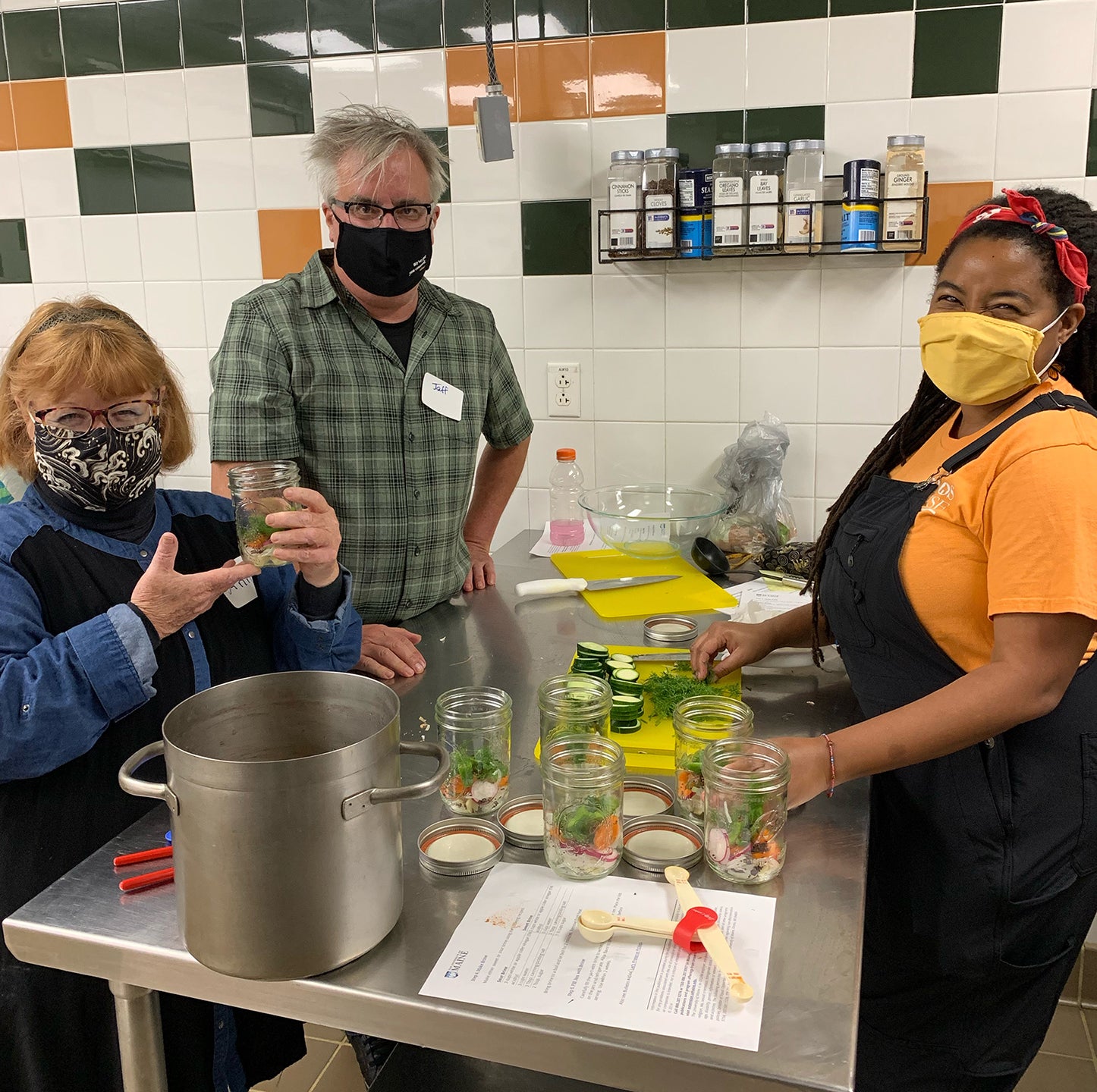Applications due Dec. 1 for next class of participants
By Todd McLeish
Just two months into the
University of Rhode Island’s inaugural Food Recovery for Rhode Island program,
and organizers are already calling it a successful partnership that is reducing
food waste in Rhode Island and improving food access for area residents.
The program, which
trains volunteers through a six-week course on food recovery and completion of
a 40-hour volunteer internship with a community organization, aims to rescue
and recycle food by changing the way Rhode Islanders shop for, store, prepare,
preserve and compost it.
“The blend of education from URI and community experts, coupled with a personalized behavior change project, allowed participants to learn and immediately apply what they learned to their own lives,” said Amanda Missimer, the URI Cooperative Extension faculty member who developed the curriculum.
“The program addresses
all elements of the food system, from nutrition and what people can do at home,
to learning about the landfill and what non-profits are doing to address these
issues,” added Vanessa Venturini, the URI Cooperative Extension staff member who
leads the program. “We had twice as many applications than we had space for, so
lots of people are interested. And our volunteers are already helping to
address food insecurity in the state.”
Funding from the U.S.
Environmental Protection Agency provided $5,000 mini-grants to support five
partner organizations, where the 40 participants in the first class are now
interning. Those organizations are Hope’s Harvest RI, Groundwork Rhode Island’s
Harvest Cycle program, Rescuing Leftover Cuisine, the Sankofa Initiative of the
West Elmwood Housing Corp., and Zero Waste Providence. Together, they diverted
32,395 pounds of food from the landfill this fall and donated about 10,000
pounds of food to those in need.
According to Venturini,
about 100,000 tons of wasted food enters the landfill in Johnston every year,
despite data that suggests that 25 percent of Rhode Islanders experienced food
insecurity last year. The program’s goal is to train 120 volunteers in 2021 and
2022 who will then educate an additional 2,500 people about the issues. Through
the internships, volunteers will also divert up to 60,000 pounds of wasted food
from the landfill and donate 40,000 pounds of healthy food to local families.
The program has already
experienced several unexpected outcomes. Cooperative Extension staff from other
states have inquired about using the Rhode Island program as a model. And
several local chefs and food professionals volunteered to contribute their
expertise to some of the course content.
Feedback from the first
cohort of participants has been overwhelmingly positive.
“I have always been
interested in these efforts on a personal level,” said one participant, “but
this course has emboldened me to take it a step further in working with my
local community to help implement grassroots efforts that will have a broader
impact statewide.”
Another said the program
“provided the knowledge, experience, and confidence to put these lessons into
practice as part of daily life. I’m more conscious and aware of my actions
related to food waste, and have the tools to reach out into the community to
share the knowledge.”
“They all came out of
the course with the belief that they can play a role in reducing food waste at
home and in the community,” said Venturini. “And it was fun to see their
personal journeys in class discussions and the posting of photos of changes
they’ve made in their own homes. They all have a unique perspective and shared
that with the class.”
The deadline to apply
for the February online class is Dec. 1. Cost for the course and training
materials is $200, and financial awards will be available. For more
information, visit https://web.uri.edu/coopext/foodrecovery or email
Vanessa Venturini at vventurini@uri.edu.
Food Recovery for Rhode
Island is a program of URI Cooperative Extension in partnership with the Rhode
Island Food Policy Council, the Center for EcoTechnology, Earth Care Farm, Farm
Fresh RI, Groundwork Rhode Island, Hope’s Harvest RI, Rescuing Leftover
Cuisine, Rhode Island Resource Recovery Corp., the Sankofa Initiative of the
West Elmwood Housing Development Corporation, and the Tomaquag Museum.
